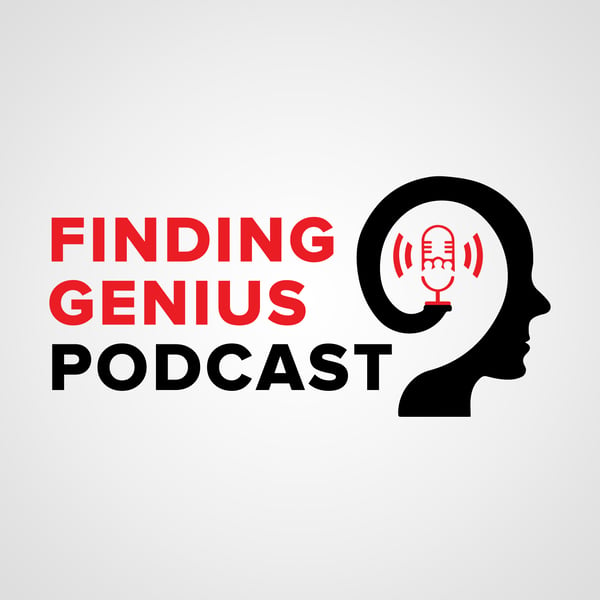The Evolution of Species and Late-Stage Cancer: An Unexpected Relationship Fueled by the Standard of Care in Cancer Treatment
Finding Genius Podcast
Richard Jacobs
4.4 • 1K Ratings
🗓️ 14 March 2021
⏱️ 52 minutes
🧾️ Download transcript
Summary
Where and why the prevailing theory of biology has gone wrong might hold the very key we need in order to understand our failure to treat cancer—especially metastatic cancer.
Press play to discover:
- Why doctors should regard cancer as its own organism with its own homeostatic drive and cellular intelligence, and how this understanding can shed light on the failure to treat late-stage cancers
- How radiation therapy and chemotherapy provoke mutations in tissues, and how this also explains why these therapies can work initially, but the cancer resurfaces years later
- How extracellular vesicles, viruses, and sperm cells are similar, and how this is related to the primary drive of speciation
- How lung cancer can be detected in people who have absolutely no symptoms
Professor Denis Noble of the Department of Physiology, Anatomy and Genetics at the University of Oxford has been studying physiology and evolutionary biology for decades, and has made many discoveries and published countless papers along the way. Despite this, it wasn't more than a year ago that he would have said, “I don’t know anything about cancer.” To his surprise, a mounting body of research and evidence is showing that he might know a whole lot more about cancer than he thinks.
And why is that? Because of the relationship between the evolution of species and cancer itself.
Noble dives into the details of this relationship, and so much more, including early detection methods for lung and other types of cancer, the role of the immune system in picking up cancer cells that are in our body at any point in time (but never develop into cancer as we know it), decentralized cellular control in the body, what can be learned by the exosomes put out by cancer cells, the failure of the standard of care prescribed for metastatic cancers, the importance of keeping our immune systems healthy, and the microenvironment of a primary tumor vs. metastasis.
Tune in for all the details.
Transcript
Click on a timestamp to play from that location
| 0:00.0 | Forget frequently as questions. |
| 0:02.0 | Common sense, common knowledge, or Google. |
| 0:05.0 | How about advice from a real genius? |
| 0:07.0 | 95% of people in any profession are good enough to be qualified in license. |
| 0:11.0 | 5%? |
| 0:12.0 | Go above and beyond. |
| 0:13.0 | They become very good at what they do. |
| 0:15.0 | But only 0.1% are real geniuses. |
| 0:18.0 | Richard Jacobs has made his life's mission to find them for you. |
| 0:22.0 | He hunts down and interviews geniuses in every field. |
| 0:25.0 | Sleep science, cancer, stem cells, ketogenic diets, and more. |
| 0:29.0 | Come the geniuses. |
| 0:30.0 | This is the Finding Genius Podcast. |
| 0:33.0 | The Richard Jacobs. |
| 0:36.0 | Hello, this is Richard Jacobs with the Finding Genius Podcast. |
| 0:41.0 | Part of the Finding Genius Foundation. |
| 0:43.0 | I have a returning guest. |
| 0:44.0 | This may be his fifth time, but there's a reason for that. |
| 0:47.0 | Dennis Noble. |
| 0:48.0 | He's part of the Department of Physiology and Anatomy and Genetics at University of Oxford. |
| 0:52.0 | He's been involved in science longer than I've been alive. |
| 0:55.0 | He's had a lot of amazing discoveries first about the heart. |
... |
Please login to see the full transcript.
Disclaimer: The podcast and artwork embedded on this page are from Richard Jacobs, and are the property of its owner and not affiliated with or endorsed by Tapesearch.
Generated transcripts are the property of Richard Jacobs and are distributed freely under the Fair Use doctrine. Transcripts generated by Tapesearch are not guaranteed to be accurate.
Copyright © Tapesearch 2025.

